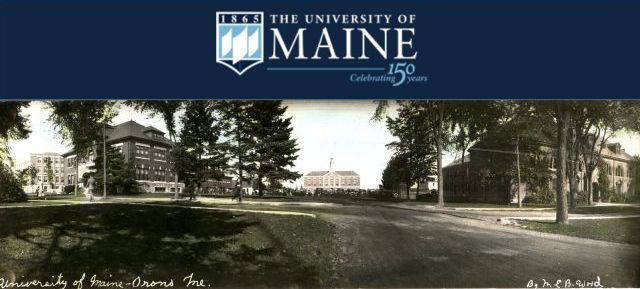
General University of Maine Publications
Document Type
Report
Publication Date
10-1-2020
Abstract/ Summary
The premise of this report is to surmise the embodied carbon impact and anticipated operational energy use of the 57,995 sf crosslaminated timber (CLT) and glulam addition to the Advanced Structures and Composites Center (ASCC) on the University of Maine campus. The project will contain open lab space for the world’s largest prototype polymer 3D printer, offices, and a presentation venue.
A life-cycle assessment is a methodology for quantifying environmental impacts at all stages of a building’s life cycle. This is a cradle-to-grave assessment of the building, beginning from raw material extraction and sourcing, to manufacturing, transportation, construction, energy use, maintenance and building end-of-life recycling/disposal.
The intent of the life-cycle assessment (LCA) is to evaluate the embodied carbon impact of the timber design and identify opportunities for impact reductions. The primary goal of the engineering analysis is to understand and determine the feasibility of the project operational energy use to achieve Zero Net Energy (ZNE) for the new lab addition. Using the results from the LCA, low carbon benchmarks will be developed for major structural components, to inform future timber developments on the University campus and in the Northeast region at large.
Repository Citation
Cox, Duncan; Davis, Alexandra; and Gooje, Vamshe, "Building Life-Cycle Carbon and Operational Energy Report" (2020). General University of Maine Publications. 1993.
https://digitalcommons.library.umaine.edu/univ_publications/1993
Version
publisher's version of the published document
Rights and Access Note
This Item is protected by copyright and/or related rights. You are free to use this Item in any way that is permitted by the copyright and related rights legislation that applies to your use. In addition, no permission is required from the rights-holder(s) for non-commercial uses. For other uses, you need to obtain permission from the rights-holder(s). For more information, contact Special Collections.


